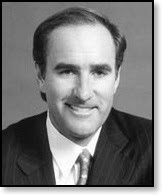Monday, December 1, 2008
CEO Compensation Is an Easy Target
After the devastating losses in the financial markets, the collapse of companies like Lehman Brothers, the bail out of insurance giant AIG, the $700 billion Troubled Asset Relief Program, as well as the injection of hundreds of billions of dollars into banks by governments around the world, it’s no surprise that executive compensation has become a target of congressional scrutiny and shareholder ire.
Wall Street has heard the message: the seven top executives at Goldman Sachs Group Inc., including CEO Lloyd Blankfein as well as Deutsche Bank AG CEO Josef Ackermann and others are waiving year-end bonuses. Other firms are looking at the cash and stock bonuses and are tying them more strongly to the company’s performance, holding some in escrow as opposed to being paid out immediately. In addition to rewarding those who deliver good results over several years some compensation committees are looking at ways to reward leaders who do not take excessive risk.
It takes just one story about a poorly performing CEO who has been ousted and yet retains a rich benefit package to infuriate those who have seen their 401 K or pension fund lose half of its value. And the newspapers have presented graphic accounts of how ineffective leaders have walked away with millions of dollars in compensation.
Keep in mind that this market sell-off has been completely democratic. Everyone everywhere has lost money. There was no place to hide as the sophisticated financial instruments proved to be based on a house of cards.
When CEO salaries are bandied about as a news item, the amounts can seem excessive or arbitrary. Yet companies with strong boards and corporate governance criteria have a Compensation Discussion and Analysis in their proxy statements that reveal a thoughtful approach to attracting and retaining the most talented executive to build shareholder value over the long term.
Long term is an important concept since the current financial malaise will take many months or even years to correct. The U.S. economy as part of the global economy is going through the most significant market adjustment in one hundred years. It’s the most momentous financial re-set in a century.
These times call for the best leaders with a thoughtful approach to the challenges to steer our companies through these treacherous waters.
---
Learn more at CEO Succession.
Thursday, November 13, 2008
Wall Street Journal: In The Lead: What Boards Can do to Boost Independence, Restore Investor Trust
The Wall Street Journal
In The Lead: What Boards Can do to Boost Independence, Restore Investor Trust
By Carol Hymowitz. Wall Street Journal. (Eastern edition). New York, N.Y.: June 25, 2002 pg. B1
“Some executives and board recruiters complain that the proposals will pit corporate heads against directors, and increase the difficulty of filling board slots."
“Mr. Carey recommends that boards establish just four commitees – Audit, compensation, corporate governance and director nominations-- to center their attention on key issues.”
Monday, July 14, 2008
Dennis C Carey on The 360
Highly accurate appraisals of talent are a critical ingredient of an organization's success. One highly regarded measurement tool is known as the 360 evaluation - where managers, peers and direct reports offer their individual confidential opinions of a leader's competencies, strengths and weaknesses. Today, the 360 is considered thegold standard in employee evaluation.
But is the 360 really an honest evaluation?
What is your opinion? Read my full article here.
